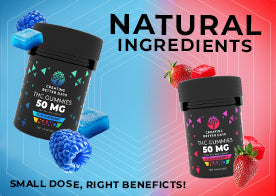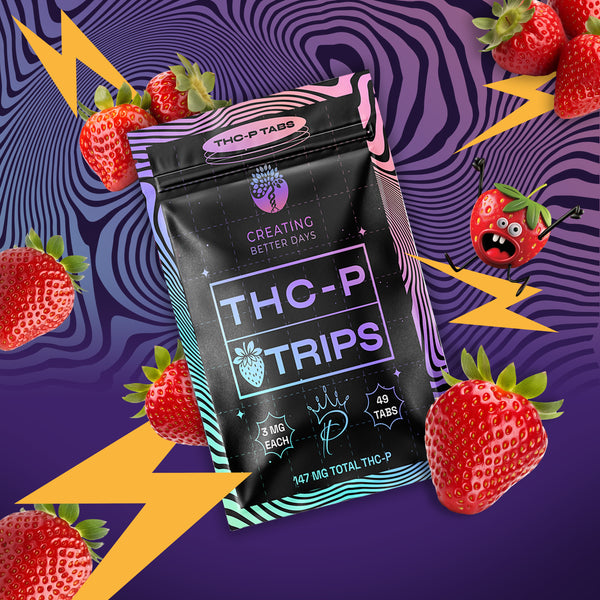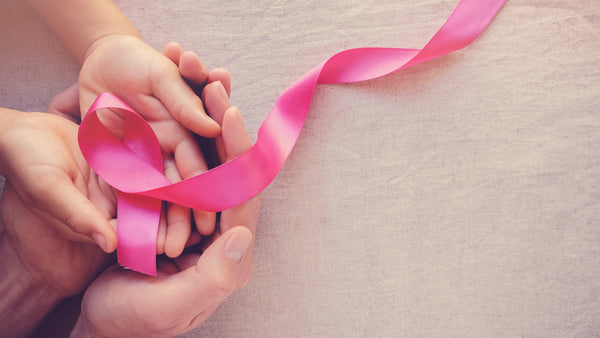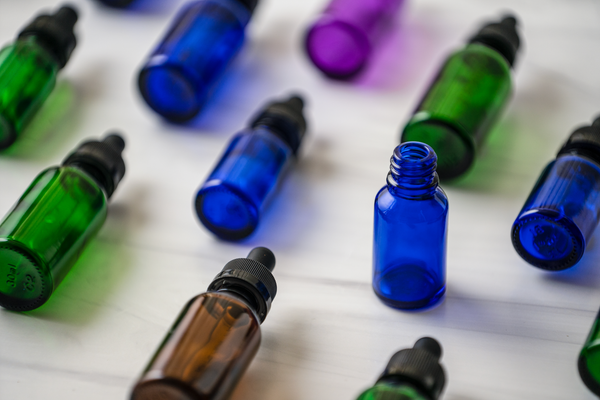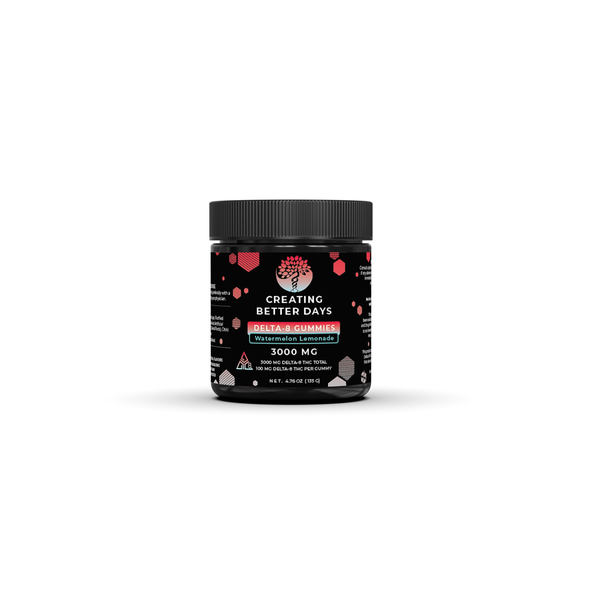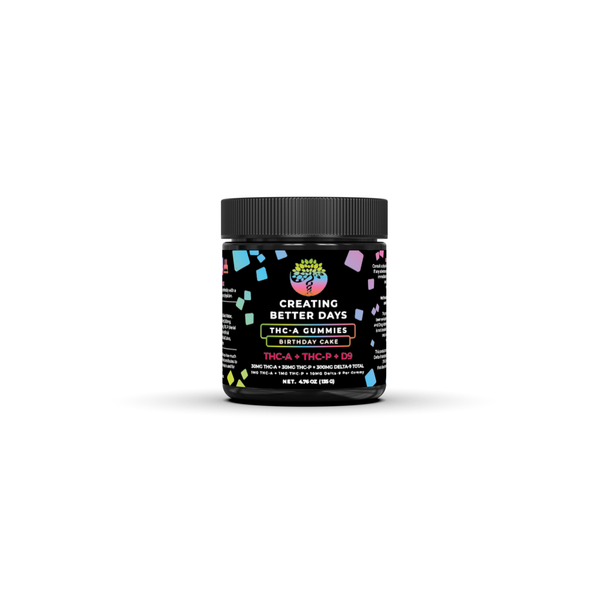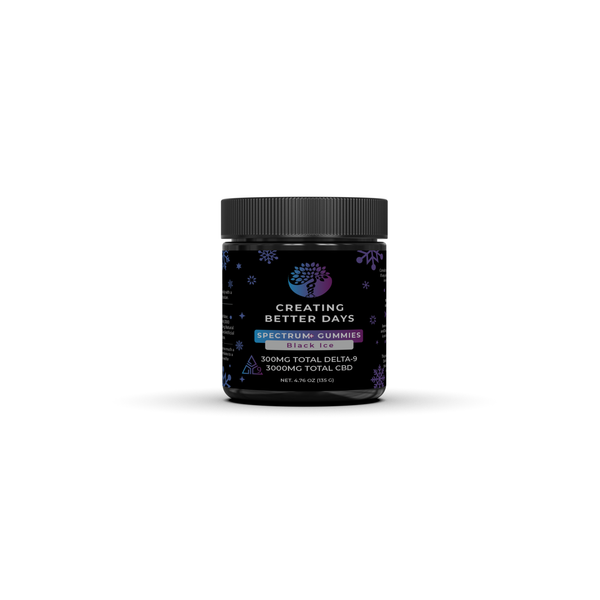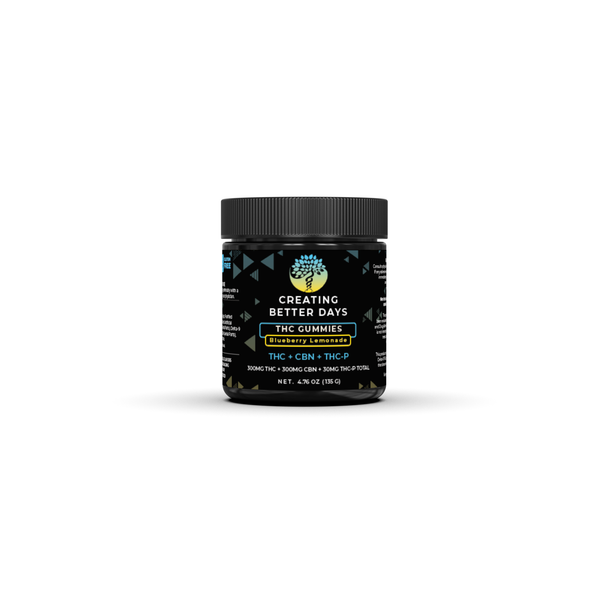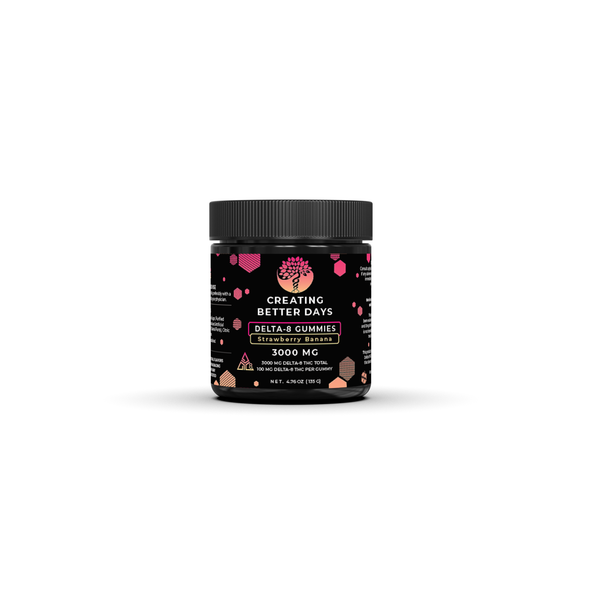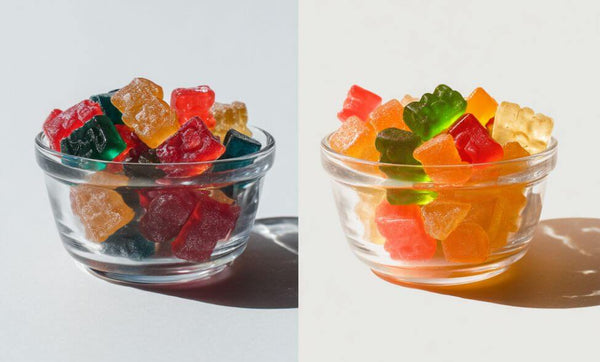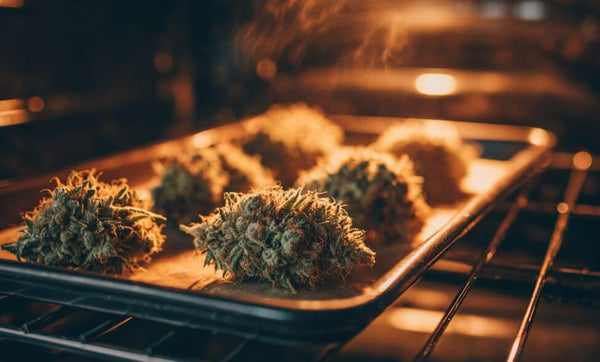
What is a High THCA Percentage?
When it comes to cannabis, the percentages on product labels can be a bit of a mystery. If you're reading a cannabis label and wondering, "What is a high THCA percentage?" you're not alone. The world of cannabinoids is filled with acronyms, numbers, and jargon that can confuse even the most seasoned users.
So, let's break it down. THCA (tetrahydrocannabinolic acid) is a precursor to THC, the cannabinoid most people associate with the feeling of being “high.” However, here is where things get interesting: The chemical THCA itself is not psychoactive. When THCA is heated (through a process called decarboxylation), it becomes THC, which gives you the desired effects. So, if you’ve been wondering whether a high THCA percentage is something to look for, let’s dive into what it means and how it affects your cannabis experience.
We'll explain everything you need to know about high THCA percentages and how they affect your experience. THCA will become evident to you by the end of this article.
Table of contents
Key Takeaways
-
What is a High THCA Percentage? A high THCA percentage generally refers to a cannabis product with more than 20% THCA.
-
The non-psychoactive compound THCA transforms into THC when heated.
-
The THCA percentage on a product label helps you determine how potent the final product could be after decarboxylation.
-
Converting THCA to THC can increase potency and influence your cannabis experience.
Anatomy of a Cannabis Label
The label of a cannabis product contains a lot of information. The key to understanding it isn't complicated.
Here’s how to break down a cannabis label to find the THCA percentage and other important details.
Product Name
The product name typically gives you an idea of the strain or product type, like "Blue Dream" or "OG Kush." Sometimes, the name may include the THCA or THC percentages.
Product Type
Cannabis products come in various forms: flowers, concentrates, edibles, and more. The type of product you choose affects how the THCA is processed and how it interacts with your body. For instance, flower typically has a THCA percentage listed, but concentrates and edibles will list THC percentages since they’ve been decarboxylated.
Weight
It refers to the total amount of product in the container, whether it's a gram of flower or an edible bottle. Keep in mind that the weight doesn’t directly affect the THCA content; it’s all about the percentage listed.
Dosage
Dosage is important for products like edibles or tinctures. The label often tells you how much of the active compound (THCA or THC) you’re using per serving. This helps you gauge the potential effects without overdoing it.
Other Pieces of Information
Some products also include lab testing results, showing you the exact cannabinoid percentages, including THCA, THC, CBD, and others. This is especially helpful when you’re trying to figure out what “high THCA” really means.
Understanding Potency Analysis
When you see a THCA percentage listed, it’s essential to understand what it means for potency. Potency analysis gives you a snapshot of the cannabis product’s potential effects.
Converting THCA to THC
Now, you might be thinking, "Why does it matter if the product contains THCA instead of THC?" The key lies in the conversion. When you heat THCA, either through smoking, vaping, or baking, it turns into THC—a compound that’s known for its psychoactive effects.
For example, if a cannabis product lists 20% THCA after decarboxylation (heating), the THC content could rise to around 15-18%, depending on the exact process. So, a high THCA percentage could indicate a more potent THC experience after decarboxylation.
How to Decarboxylate THCA
In simple terms, decarboxylation is the process of heating the cannabis to activate the THCA and turn it into THC. In the case of smoking or vaping cannabis, the heat from the flame or vape pen automatically decarboxylates the THCA. If you’re cooking with cannabis, you’ll need to bake it in the oven to activate the THCA before adding it to your recipe.
While decarboxylation is often automatic with smoking or vaping, you can use a food-grade decarboxylation machine for precise control if you’re preparing edibles. The longer the heating process, the more THCA will convert to THC, resulting in a stronger effect.
THCA and THC Percentage
It’s common to see both THCA and THC percentages on cannabis product labels, but what’s the difference?
THCA Percentage
The non-psychoactive version of THC. When you see a high THCA percentage on a product, it’s essentially a signal that the product could have a potent THC experience once decarboxylated. As a rough rule of thumb, cannabis with a higher THCA percentage will likely offer a stronger THC effect once smoked or vaped.
THC Percentage
This is the active cannabinoid responsible for the "high" that many users are looking for. If you're buying a product to feel those effects, the THC percentage is what you want to focus on.
Now, some products may only list THC after decarboxylation, while others will give you the raw THCA percentage. It’s always helpful to know how the product will be used, as that can affect the final THC content.
Computing THCA Percentages
The THCA percentage is typically determined through lab testing. When a product is tested for THCA content, the laboratory performs a detailed chemical analysis to find out how much THCA is present in the plant material. These results are then displayed on the product label.
If you want to compute the THCA percentage yourself, you'll need a sample of the cannabis product and access to a lab capable of performing chromatography tests. However, for most users, it’s best to trust the numbers provided by the manufacturer.
What is Considered High THC?
Since THCA is just the precursor to THC, understanding what constitutes a high THCA percentage can give you an idea of the THC potency once the product is heated. Typically, cannabis strains with more than 20% THCA are considered potent, with some premium strains even exceeding 30%.
When you convert that to THC, you're looking at a range of 15-25%, depending on the decarboxylation process. That means that if you want a strong, psychoactive effect, you’ll want to look for cannabis with high THCA content.
What is Considered a High THCA Percentage?
Now, let's dive into the details of what’s considered "high" when it comes to THCA percentages. Typically, THCA percentages can range from 10% to 30% in cannabis flowers, with 20% or higher often being considered a high THCA percentage. It depends on what you're using it for whether or not it qualifies as "high." If you’re interested in achieving a stronger effect from your THCA products, you’ll probably be on the lookout for those higher numbers.
If you pick up a flower that contains 15% THCA, that’s decent. But if you find one with 25% or higher, that’s considered potent. The higher the THCA, the more potential there is for THC to form once you decarb it (or expose it to heat). Heat only transforms THCA into THC when it's heated, so it doesn't produce a high by itself.
So, the next time you hear about "high THCA," you’ll know that it’s all about that potential for conversion. Higher THCA means a higher possible THC content when properly processed or heated.
The Importance of THCA in Hemp and Cannabis Products
If you're new to the world of cannabis and hemp, you might be wondering: "Why does this even matter?" Raw cannabis plants contain THCA, a non-psychoactive compound. When exposed to heat, it undergoes a process called decarboxylation, where it converts into THC. This is why you'll often hear about THCA percentages in relation to raw or unprocessed cannabis products.
To put it into perspective, imagine cooking a pot of chili. If you add chili powder to your pot, it will give the chili its signature taste and kick. The chili powder itself doesn’t make the chili spicy until it mixes with the heat. Similarly, THCA is like chili powder—it needs heat to unlock its full potential, converting into the psychoactive THC.
What Does a High THCA Percentage Mean for You?
When you're looking at a product with a high THCA percentage, it’s all about the potential experience. The higher the THCA, the more potential for THC once it's heated. For those of you who enjoy the effects of THC, a high THCA percentage means you’re likely going to feel stronger effects after decarbing or vaping.
But here’s a key piece of advice: higher THCA doesn’t necessarily mean that the effects will be overwhelmingly strong—it's all about the process of turning THCA into THC through heat. If you're curious, "How do I get the most out of a high THCA percentage?" consider how you're using your product. For example, when using THCA-rich cannabis in a vaporizer or smoking it, the heat applied will convert more of that THCA into the THC that you’re after.
At We offer a variety of products with different THCA percentages at Creating Better Days. You'll find something you like whether you're new to THCA or an experienced enthusiast. Check out our THCA Products and see what works best for you.
More THC = Higher Potency?
You might be thinking, "More THCA means more THC, and more THC means more potency, right?" Well, sort of. Higher THCA content does indicate a higher potential for THC when it's properly heated, but potency isn't solely about the amount of THCA in the product. There are a lot of factors to consider, such as how the product is processed, the type of cannabis or hemp strain, and how you choose to use it.
For example, two strains of cannabis might have the same THCA percentage, but their effects could be different. One strain might give you a more relaxing experience, while another might be more uplifting. That’s because THC interacts with various receptors in the body, and different strains can affect individuals differently. So, while a higher THCA percentage means more potential THC, it’s also about the overall quality of the strain and how it’s used.
Are High THCA Products Always Better?
It’s easy to assume that the higher the THCA percentage, the better the product. But that’s not always the case. A high THCA percentage can indicate potency, but it’s important to remember that the experience is subjective. Some people might prefer a product with a moderate THCA percentage because it offers a more balanced, milder experience. Others might seek higher THCA products for a more intense effect.
At the end of the day, it’s about what you’re looking to achieve with your cannabis or hemp product. If you’re after a stronger, more potent experience, then yes, a high THCA percentage will likely deliver. But if you’re after something milder, you may want to explore products with a lower THCA content.
Are you looking for high-quality THCA products? Check out the selection available at Creating Better Days. We have a variety of THCA-rich products, including THCA Gummies, that offer a potent experience once decarboxylated. Whatever your level of cannabis experience, our products have something for you. Head over to our website and find the THCA products and THCA Gummies that best suit your needs.
Final Thoughts
Understanding what is a high THCA percentage is key when navigating the world of cannabis and hemp products. The higher the THCA, the greater the potential for THC once it’s heated. But the experience isn’t just about numbers—it’s about how your body responds to the product and what kind of experience you’re looking for. Whether you’re seeking something with a little more kick or something more mellow, there’s a THCA percentage for everyone.
Remember, when shopping for products, always consider how they’ll be used. If you’re unsure about which product suits you best, we invite you to explore the wide variety of THCA products available at Creating Better Days. Whatever your level of potency, there's something for you.
Frequently Asked Questions
Can You Get High From THCA?
No, raw THCA (tetrahydrocannabinolic acid) is not psychoactive. It only becomes psychoactive after decarboxylation (heating), which converts it into THC.
What’s the Current THCA Legal Status?
As THCA is not classified as a controlled substance, it is legal in most states. Depending on state laws and regulations regarding hemp and cannabis, its legal status can vary.
Does THCA Show Up On Drug Tests?
Yes, THCA can show up on drug tests, especially if it has been converted into THC. If you need to pass a drug test, be cautious when using THCA products.
If you still have questions about THCA, don’t hesitate to reach out to our expert support team at info@creatingbetterdays.com or give us a call at (1800) 215-0223. Our team is always happy to assist you with any queries you may have. For more insights, visit our blog section, where we cover a wide range of topics about THCA and other cannabis-related information.

